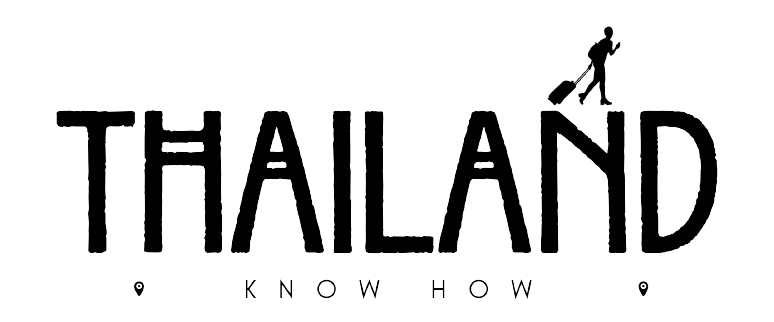Discover the essential steps to sponsor your spouse for a Thailand work visa. Expert guidance for a smooth application.
In the realm of global migration, few know that in recent years, Thailand has become a vibrant hub for international professionals, with thousands securing a Thailand work visa annually. This surge is not just solo adventurers; a significant portion encompasses families seeking to navigate the complexities of Thailand work visa sponsorship for a spouse. Navigating the Thailand work visa application process is the first crucial step for those aspiring to work and embrace life in the Land of Smiles with their loved ones by their side.
The journey from application to approval is marked by meticulous planning, understanding the legal nuances, and fulfilling stringent criteria, especially when undertaking a Thailand spouse visa application. Whether one seeks to immerse in Thailand’s corporate fabric or to accompany a working partner, a clear grasp of the visa framework is indispensable. In this guide, we unveil the essential information and strategies to successfully secure a work visa in Thailand for you and your spouse.
Key Takeaways
- Understand the distinction between a work visa and a work permit to ensure legal employment in Thailand.
- Diligently prepare the required documentation for both the Thailand work visa and the spouse sponsorship.
- Awareness of the various types of non-immigrant visas can optimize your application strategy.
- Compliance with Thai regulations is essential to avoid potential legal penalties and ensure a smooth transition for your family.
- Consideration of the specific needs and qualifications of your spouse will inform the best sponsorship approach.
- Anticipating processing times and bureaucratic procedures will set realistic expectations for your relocation timeline.
Understanding the Thailand Work Visa and Permit System
The intricacies of obtaining legal authorization to work in Thailand involve navigating through the policies of the work visa Thailand and Thailand work permit systems. While they are complementary, these permits have distinct roles and requirements crucial for any Thailand work visa for foreigners. Being well-informed of the intricacies can save individuals from the pitfalls of non-compliance.
The Difference Between Thailand Work Visa and Work Permit
To legally enter and work in Thailand, a non-Thai national must first secure a work visa. This serves as the preliminary clearance for employment possibilities within the country. However, this is not to be confused with the work permit, which is a detailed document stating the foreigner’s specific role and the employer’s details. Essentially, a work visa is for entry, while the work permit is for employment.
Understanding the division between a Thailand work permit and work visa Thailand is the first critical step for compliance in the Thai employment landscape.
Importance of Compliance for Foreign Workers in Thailand
Compliance with Thai law is non-negotiable for foreign workers. Operating within the legal frameworks is essential not only to avoid fines or deportation but also to maintain the possibility of extending one’s stay and career in Thailand. Aligning with these regulations epitomizes respect for the host country and its legal boundaries, ensuring a smoother professional and personal experience in Thailand.
Below is a comparative table highlighting the primary differences between a work visa and a work permit in Thailand:
| Criteria | Thailand Work Visa | Thailand Work Permit |
|---|---|---|
| Purpose | Allows entry into Thailand for employment purposes. | Authorizes a specific job at a specific company within Thailand. |
| Issued By | Royal Thai Embassies or Consulates. | Thailand’s Ministry of Labor. |
| Pre-requisites | A job offer from a Thai employer. | A valid Thailand work visa and a job offer. |
| Validity | Typically single-entry with the option to apply for multiple entries. Must be used within a specific timeframe from issue date. | Generally valid for one year, renewable annually. |
| Legal Consequences of Non-compliance | Denial of entry or deportation. | Fines, imprisonment, deportation, and future bans from entering Thailand. |
Familiarity with the nuances of both permits is a requisite for a legally sound and stress-free work experience in Thailand.
Eligibility Criteria for Work Visa Sponsorship in Thailand
Acquiring a work visa in Thailand requires meeting stringent eligibility criteria that can vary depending on whether the applicant is seeking a general work visa or eligibility for a spouse visa under visa sponsorship in Thailand. Generally, the basic Thailand spouse visa requirements include a marriage to a Thai citizen, proof of financial stability, and a clean criminal record, among others. Here’s a detailed breakdown of what both individuals and their Thai sponsors need to understand before initiating the visa application process.

For individual applicants, the emphasis is placed on professional qualifications, previous work experience, and possessing the necessary skills that the job demands. Moreover, relevant educational degrees and a thorough background check are pivotal in determining eligibility. On the other hand, the sponsoring entity—which can be a Thai company or a Thai spouse—must also satisfy certain obligations. These include but are not limited to corporate registration conforming to Thailand’s business laws and a specific capital investment threshold. Additionally, companies are required to maintain a certain ratio of Thai to foreign employees, which must be adhered to diligently.
Expanding further on the spouse visa Thailand requirements, marriage documentation is critical. A valid marriage certificate recognized by Thai law is non-negotiable. Eligibility further relies on proof of a genuine relationship and the capability to financially support oneself and dependents if necessary. For the primary holder of the work visa, the addition of a marriage visa can simplify the overall process of obtaining a work permit.
- Demonstration of a legal marriage through valid documentation
- Proof of financial stability, with minimum income thresholds to be met
- Background checks free from criminal activity
- Adequate health insurance coverage for the duration of the stay
The exact specifics of visa sponsorship in Thailand are detailed in the country’s immigration policies, which stress the importance of adhering to the laid down legal procedures to avoid any complications during the application process or the stay. It is pertinent for applicants and sponsors alike to be fully aware of and comply with these regulations to ensure a smooth transition and a legitimate stay in Thailand.
Types of Non-Immigrant Visas Available for Working in Thailand
Thailand offers a variety of non-immigrant visas that cater to the different needs of foreign nationals looking to engage in employment or business within the kingdom. Understanding the multiple visa options and their respective purposes is vital for planning a legal and successful stay.
Non-immigrant B Visa for Employment and Business Activities
The Non-immigrant B Visa is designed for expatriates who intend to work in Thailand. Businesses often require this visa type for their foreign employees, which is a precursor to obtaining a work permit. It is also suitable for those wanting to start a company or engage in any business-related activities in the country.
Special Category Visas: IB, B-A, and Smart Visa
Thailand also encourages foreign investment through special visa categories like the IB Visa for investment and the B-A Visa for business-approved activities. Additionally, the Smart Visa targets those in “S” industries such as startups and specialists, offering benefits like work permit exemptions, which streamline the ability to work in Thailand.
The Value of a Non-Immigrant O Visa for Accompanying Family Members
If you’re navigating the thailand spouse visa application process, the Non-immigrant O Visa is significant. It allows family members, including spouses, to live in Thailand while the primary visa holder takes on employment or business ventures. This visa strengthens family presence during an expatriate’s professional journey in Thailand.
Below is a comparative table that outlines the key features of each visa category:
| Visa Type | Purpose | Eligibility | Key Benefits |
|---|---|---|---|
| Non-immigrant B Visa | Employment and Business Activities | Foreign nationals with a job offer or business intent | Pathway to Work Permit |
| IB Visa | Investment | Investors in specific sectors | Investment Promotion Privileges |
| B-A Visa | Business-Approved Activities | Business executives and investors | Long-term Stay Options |
| Smart Visa | “S” industries (e.g., Startups, Specialists) | Entrepreneurs, High-level executives | Work Permit Exemptions |
| Non-immigrant O Visa | Accompanying Family Members | Family members of foreign workers | Allows stay with primary visa holder |
For those looking to move to Thailand, whether for family, business, or investment, understanding these visa options is crucial. The right visa can greatly facilitate your endeavors in the country, whether you’re seeking a work visa in Thailand or accompanying a spouse. Keep in mind the prerequisites for each type and how they align with your circumstances for a smooth non-immigrant visa Thailand application experience.

Key Steps in the Thailand Work Visa Application Process
Navigating the Thailand work visa process requires an understanding of the sequential steps and documentation involved. It begins with securing a non-immigrant visa and culminates in submitting a Thailand work visa application at the Ministry of Labor. Here’s an overview of what to expect:
- Secure a Non-immigrant Visa from your nearest Royal Thai Embassy or Consulate prior to arrival in Thailand. This is the foundation upon which you’ll build your work authorization.
- Enter Thailand with your Non-immigrant Visa, and prepare to convert it into a work permit. You’ll need this to gain legitimate employment.
- Gather all obligatory documents, including personal qualifications and company registration details – both are crucial for the work permit application.
- Apply for a work permit at the Thai Ministry of Labor, ensuring all details are meticulously completed and all required documents are in order.
- Monitor your visa status and be prepared to extend it if necessary, such as in the case of a Company-Sponsored Non-immigrant B Visa which may be extended annually post-issuance.
Remember, the processing time for a work permit varies depending on where in Thailand you apply. In Bangkok, expect a turnaround of about 7-10 business days. In other areas such as Phuket, this could be up to 2 months.

Keeping track of the Thailand work visa process may seem daunting, but being diligent about each step will help ensure a smooth transition into your new professional role in Thailand. For additional guidance, don’t hesitate to consult with professional visa services or legal counsel well-versed in Thai immigration policies.
Requirements and Documentation for a Successful Work Permit Application
Embarking on the journey to secure a work permit in Thailand demands meticulous attention to the required documents. Both the employing company and the foreign professional must prepare a comprehensive compilation of paperwork to ensure the process proceeds without setbacks. To facilitate the pathway to employment for those with Thai spouses, understanding the spouse visa Thailand requirements is equally critical for a successful outcome.
Documentation from the Employing Company in Thailand
For a company to support a Thailand work visa sponsorship for a spouse, they must present an array of crucial documents. This includes a valid Commercial Registration Certificate, illustrating the company’s legal establishment, financial statements, and evidence of taxation compliance. These forms are instrumental in embodying the company’s credibility and capacity to employ foreign nationals within the Kingdom of Thailand.
Personal Documentation Needed from the Foreign Employee
The foreign employee’s dossier must comprise their current passport with an entry visa, educational and professional credentials that affirm their qualifications, and a medical certificate confirming their good health. Additionally, the Thailand spouse visa requirements dictate that marital ties be verified via a marriage certificate and proof of financial ability to support dependents in Thailand. This robust collection of documents is crucial to navigate the Thailand work visa process successfully and to solidify the grounds for a spouse’s sponsorship application.
Requirements and Documentation for a Successful Work Permit Application
What’s the difference between a Thailand Work Visa and a Work Permit?
A Thailand Work Visa is an entry visa needed by foreigners to be allowed into Thailand for work purposes, which must be obtained before arrival. A Work Permit is a legal document issued within Thailand that specifies the job and employer and allows the visa holder to work legally in the country.
Why is compliance important for foreign workers in Thailand?
Compliance with Thai immigration laws is crucial for foreign workers, as working without a proper Work Visa and Work Permit is illegal and can result in penalties. Understanding and adhering to the processes and requirements ensures a lawful and hassle-free work experience in Thailand.
What are the requirements for obtaining work visa sponsorship in Thailand?
The eligibility for work visa sponsorship in Thailand includes having a job offer from a Thai employer that meets specific criteria, possessing the relevant qualifications, and having all the necessary documentation. If the foreigner has a Thai spouse, they may apply for a marriage visa which allows them to obtain a work permit under different conditions, including providing a marriage certificate and evidence of financial support.
What is a Non-immigrant B Visa and who is it for?
The Non-immigrant B Visa is tailored for foreigners who wish to work or conduct business in Thailand. It’s applicable to those with job offers or who are setting up companies in the country.
What are Special Category Visas like IB, B-A, and Smart Visa?
These Special Category Visas such as IB (Investment and Business Visa), B-A (Business Approved Visa), and Smart Visa are designed for individuals involved in investment, business startups, or high-tech industries that the Thai government encourages and supports. Privileges of these visas may include exemptions from Work Permits.
How does a Non-Immigrant O Visa benefit family members of work visa holders?
The Non-immigrant O Visa is valuable for family members of work visa holders as it allows them to live in Thailand. For spouses of Thai nationals or foreigners holding work visas, the O Visa permits them to stay in the country and may pave the way for a work permit under certain conditions.
Can you outline the Thailand work visa application process?
The application process starts with securing a non-immigrant visa from your home country’s Royal Thai Embassy or Consulate. Once in Thailand, you then apply for a work permit at the Ministry of Labor, providing all the required documents. This process can take from 7-10 business days to 2 months, depending on the location within Thailand.
What documentation must a company provide for a work permit application in Thailand?
The employing company must provide various documents such as the Commercial Registration Certificate, list of shareholders, Company’s Tax ID Card, VAT certificate, financial statements, and evidence of hiring a certain number of Thai employees.
What personal documentation is required from a foreign employee for a work permit in Thailand?
A foreign employee must submit their passport, valid non-immigrant visa, educational certificates, health certificate, and sometimes police clearance. If married to a Thai national, they need to provide their marriage certificate and prove the financial ability to support the family for visa sponsorship.






Leave a reply